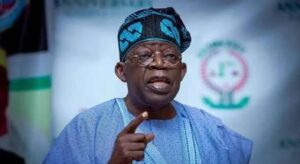 In a high-level virtual climate dialogue co-hosted by UN Secretary-General António Guterres and Brazilian President Luiz Inácio Lula da Silva, Nigerian President Bola Tinubu emphasized the urgent need for global unity, courage, and sustained commitment to address the escalating climate crisis. He stressed that climate action should be viewed not as a barrier to development but as a strategic necessity for sustainable growth.
In a high-level virtual climate dialogue co-hosted by UN Secretary-General António Guterres and Brazilian President Luiz Inácio Lula da Silva, Nigerian President Bola Tinubu emphasized the urgent need for global unity, courage, and sustained commitment to address the escalating climate crisis. He stressed that climate action should be viewed not as a barrier to development but as a strategic necessity for sustainable growth.
President Tinubu highlighted Nigeria’s comprehensive Energy Transition Plan (ETP), aiming for net-zero emissions by 2060. The plan focuses on five key sectors: power, cooking, transportation, oil and gas, and industry, requiring over $410 billion in financing. He noted ongoing regulatory reforms, fiscal incentives, and institutional changes to align economic competitiveness with decarbonization and energy access.
Additionally, Tinubu underscored Nigeria’s leadership in the Mission 300 initiative, in partnership with the World Bank and African Development Bank, which aims to provide electricity access to 300 million Africans by 2030. He also mentioned the country’s National Energy Compact, setting measurable goals for expanding clean energy and clean cooking solutions.
As part of broader reforms, President Tinubu announced that Nigeria’s Carbon Market Activation Policy, finalized in March 2025, is expected to unlock up to $2.5 billion in carbon credit investments by 2030, positioning Nigeria as a key player in global carbon markets. He also revealed that Nigeria is updating its Nationally Determined Contributions (NDCs) under the UN climate framework to reflect these ambitious targets.
The dialogue, held ahead of COP30, brought together leaders from 17 countries and key regional blocs, including China, the EU, the African Union, ASEAN, and the Alliance of Small Island States, all emphasizing the acceleration of global climate action.
Source: Nature News
